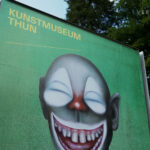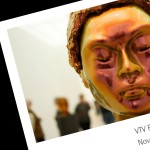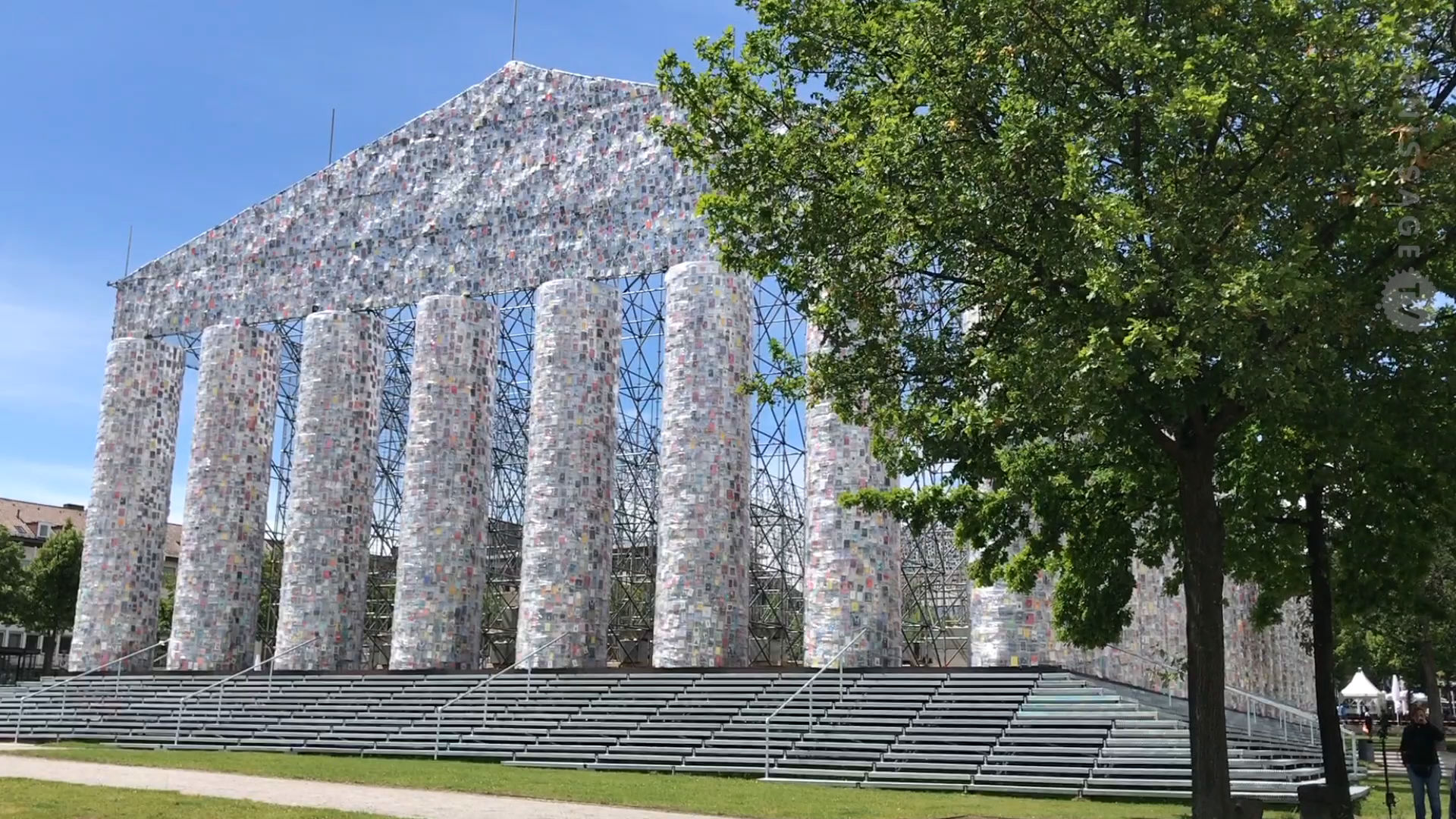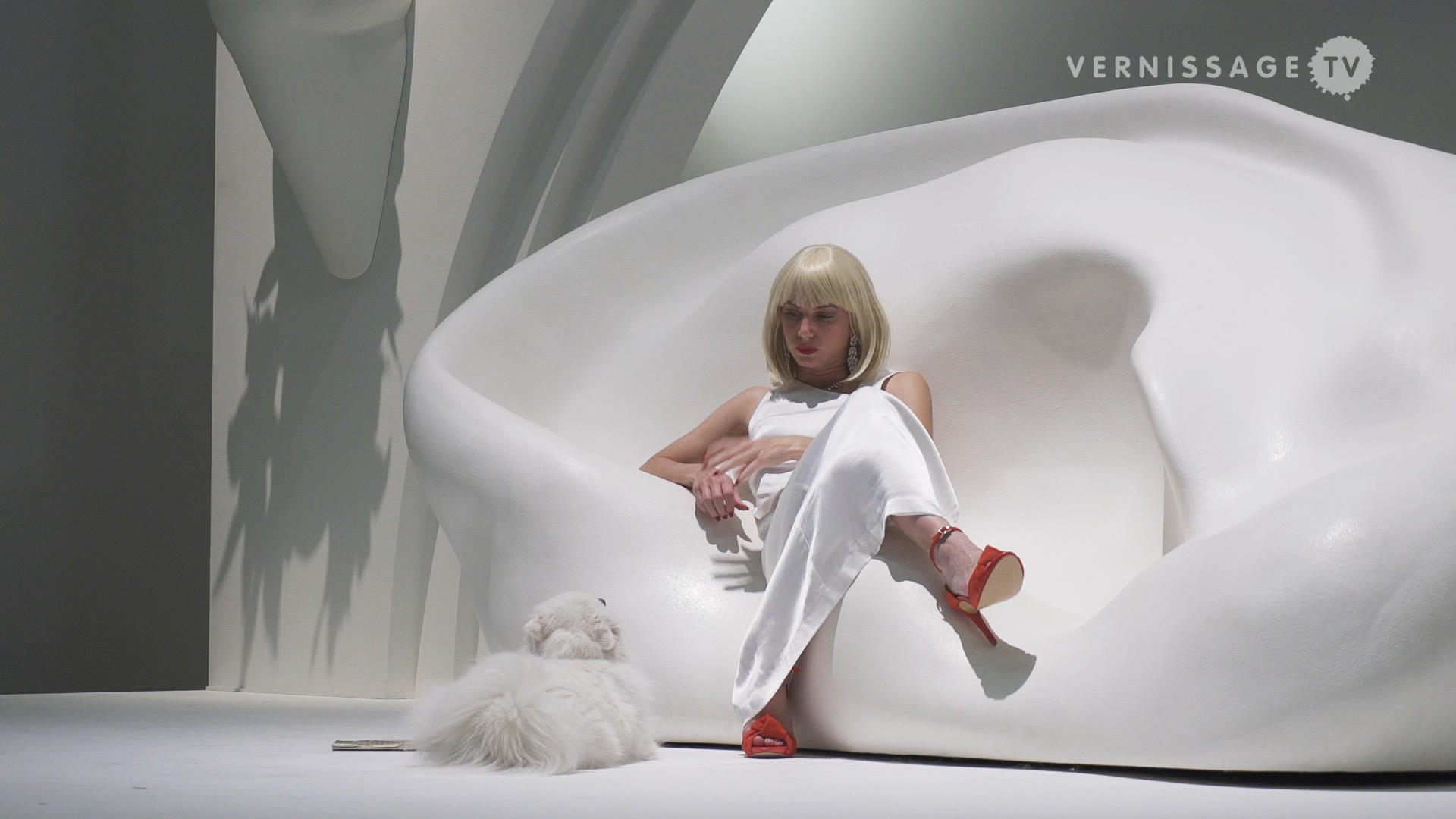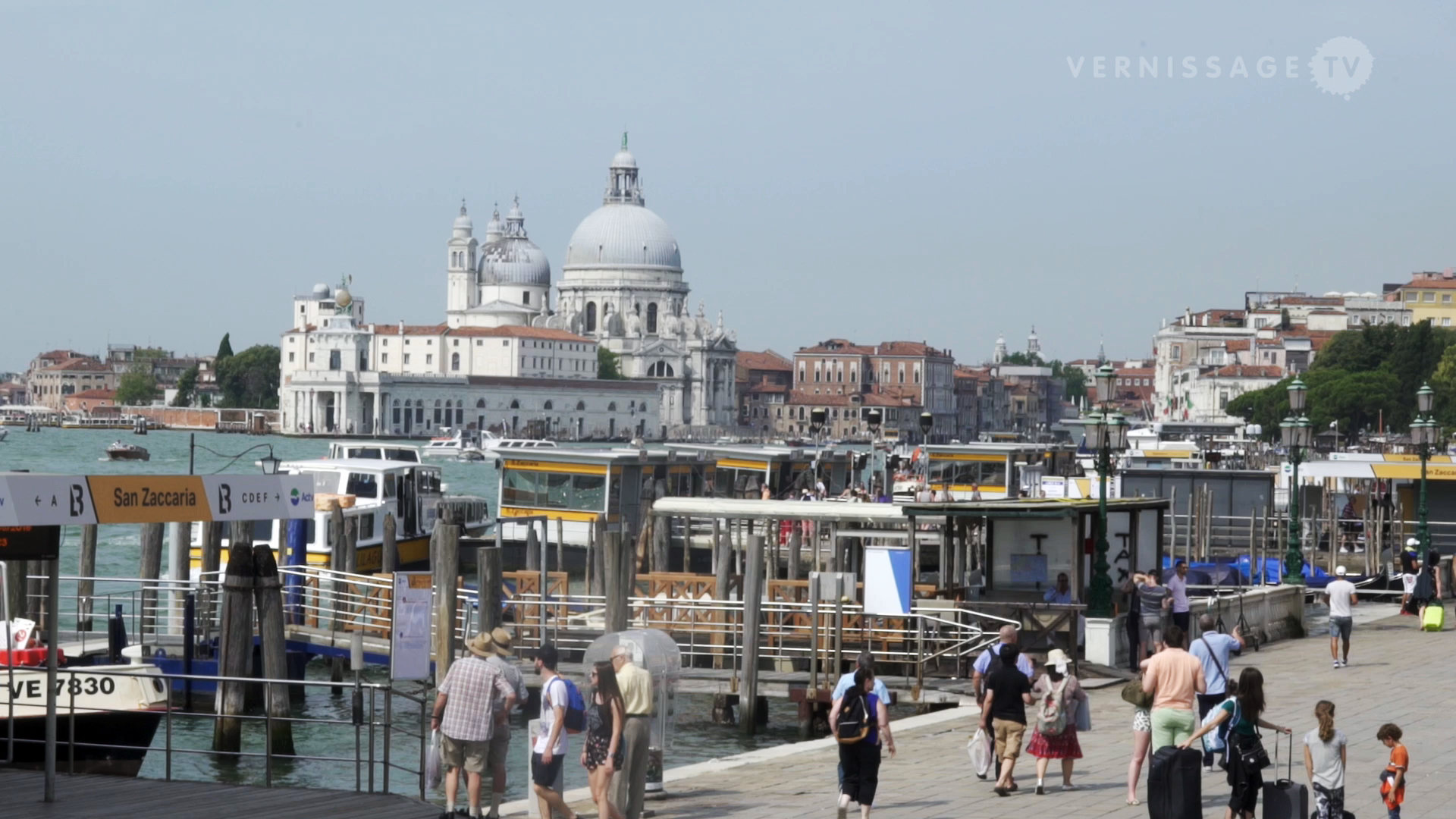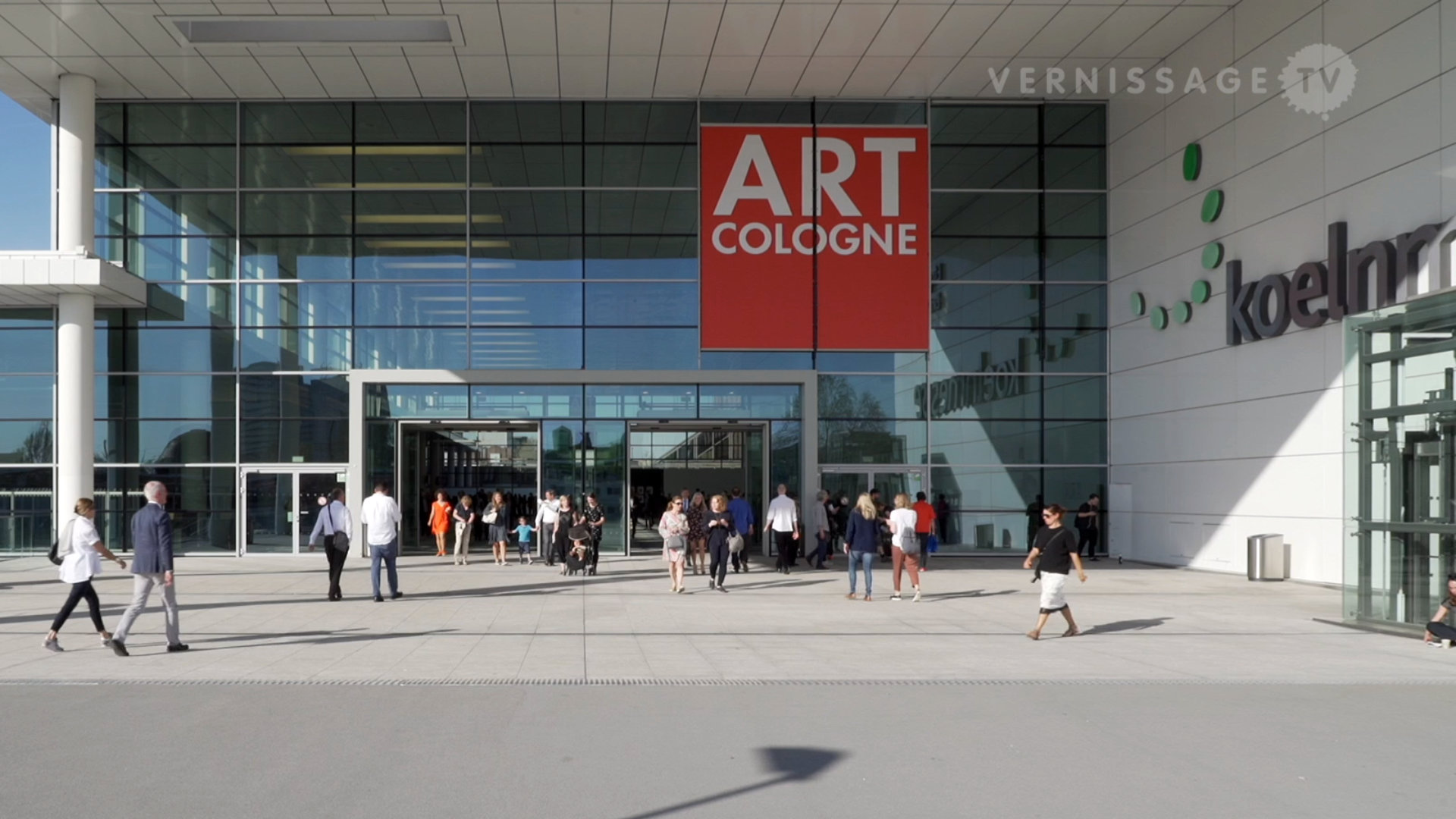Most people know Dieter Meier as frontman of the Swiss electronic pop pioneers Yello. Few of their fans are aware of the many other activities and roles of this facet-rich personality. Dieter Meier, that’s not just the singer and musician, but also the poker player, filmmaker, wine producer, restaurant owner, organic farmer, technological entrepreneur, industrialist, and not least: the conceptual artist.
Since the 1960s, Dieter Meier is active as performance and conceptual artist. He had already exhibited at renowned institutions and events such as Kunsthaus Zürich, The New York Cultural Center, and Documenta 5, when he quit the “art race” in 1976, as he says, but never stop producing art. A comprehensive retrospective dedicated to the artistic work of the multi-talent Dieter Meier is now on view in Switzerland.
The Aargauer Kunsthaus in Aarau presents Dieter Meier’s work from the 1960s to date. In this video, Dieter Meier talks about the beginnings of his career(s); the re-discovery of his conceptual work and the role of German collector Harald Falckenberg; and his attitude towards life, career and success. Finally, there’s a sample of his performance as a singer in his new band “Out of Chaos”.
The exhibition is curated by Madeleine Schuppli and runs until November 17, 2013.
Dieter Meier: In Conversation. Retrospective at Aargauer Kunsthaus in Aarau, Switzerland. Exhibition walkthrough and interview, September 6, 2013.
> Right-click (Mac: ctrl-click) this link to download Quicktime video file.
Complete interview with Dieter Meier (18:26 min.)
Musical performance by Dieter Meier (22:52 min.)
Press release:
Dieter Meier (b. 1945) is a conceptual and performance artist, draughtsman, sculptor, filmmaker, musician, essayist and poet all in one. For the first time in Switzerland, an extensive survey will be devoted to this multi-talented cosmopolite by the Aargauer Kunsthaus. Titled In Conversation, the show covers Meier’s entire career from his conceptual and performative works of the 1960s and 1970s to the present, rendering the far-reaching significance of his output palpable by including works and documentations that are shown here for the first time. The exhibition also offers visitors the opportunity to experience Dieter Meier the musician and adept interlocutor.
In Dieter Meier the Aargauer Kunsthaus presents an extraordinary artist whose work keeps transgressing conventional boundaries between genres. Based on various images and textual documents, the exhibition offers insights into Meier’s early conceptual performances (Gehen, 1970, Zürich; Two Words, 1971, New York), establishing connections to the subsequent development of his work. In the atmosphere of new departure shaped by Fluxus, conceptual art and actionist tendencies of the 1960s and 1970s, Dieter Meier staged unexpected, situational actions, sometimes allowing the public to participate in them. Conceptual approaches combined with subversive gestures, such as the 5-day event in front of the Kunsthaus Zürich that consisted in counting 100 000 screws and filling them in plastic bags (5 Tage 1969), are typical of Dieter Meier’s early career. Already at that time, he was interested in the truly “useless,” thereby subverting established patterns of the art scene as well as the moral values upheld by society in both critical and humorous ways.
Similar to his appearances in public space, Dieter Meier focuses on unspectacular situations, places and objects in his photographs as well (20 Pictures within 5 minutes, 1970; Lost Sculptures, 1976; Non Shots, 1980). Yet these insignificant entities are charged with meaning and imbued with a subtle aesthetic through Meier’s very artistic treatment of them. He often serves as material for his own work, slipping into fictitious roles and various identities for his photo series and video pieces (As time goes by, 1974-2013; Der falsche Magier, 1982).
As a precursor of Swiss video art, Dieter Meier was one of the first artists to experiment with the medium of film in the late 1960s. His films do not involve any plots or narratives (My grandparents, 1972; Portrait H. Lachmayer, 1972). Several individual film projections reveal the pioneer spirit of his early and, in some cases, little- known video pieces. Juxtaposed with his photo series, the interconnectedness of these bodies of work becomes evident. Many of Meier’s early works would influence the famous video clips of the electronic pop duo YELLO that made music history. Given the artistic significance of the videos made by Meier, these are presented in a gallery of their own.
More recent works – photo series such as Portraits (from 2010 on) as well as Dieter Meier’s manifestations involving the ASSOCIATION DES MAíŽTRES DE RIEN (since 2008) – top off the show and illustrate the consistency with which Meier continues to pursue his artistic objectives to this day. In spite of its inclusion in numerous exhibitions to date, Dieter Meier’s work has not yet received the attention it deserves. The time has come to reconsider and redefine the significance of this artist and his reception in the visual arts field.

In the late 1960s Dieter Meier staged conceptual performances in public spaces and in 1972 he participated in documenta 5 in Kassel. In 1979 he and Boris Blank founded the legendary electronic pop band YELLO that soon gained international renown with innovative sounds and video clips and would go down in music history. Today, Dieter Meier ranks among the most prominent Swiss figures on the international cultural scene. Since the 1967, his films have been shown at film festivals and from 1970 on his work has been featured in art shows both in Switzerland and abroad.
Selected one-man shows (M) and group exhibitions (G): Dieter Meier, Galerie Thomas Zander, 2012 (M); Grösser als Zürich. Kunst in Aussersihl, Helmhaus, Zürich, 2012 (G); Dieter Meier. Works 1969- 2011 and the YELLO Years, Deichtorhallen, Hamburg, ZKM, Karlsruhe, 2011-2012 (M); Rollenbilder – Rollenspiele. Role Models – Role Playing, Museum der Moderne, Salzburg, 2011 (G); Dieter Meier. En Passant 1969-2010, Grieder Contemporary Projects Berlin, 2010 (M); Schweizer Videokunst der 1970er und 1980er Jahre. Eine Rekonstruktion, Kunstmuseum Luzern, 2008 (G); As Time Goes By, Galerie Baviera, Zürich, 2005 (M).
